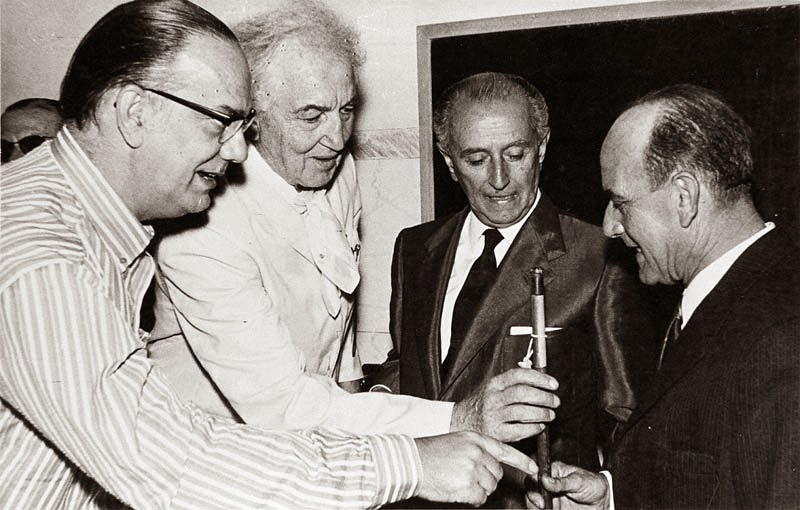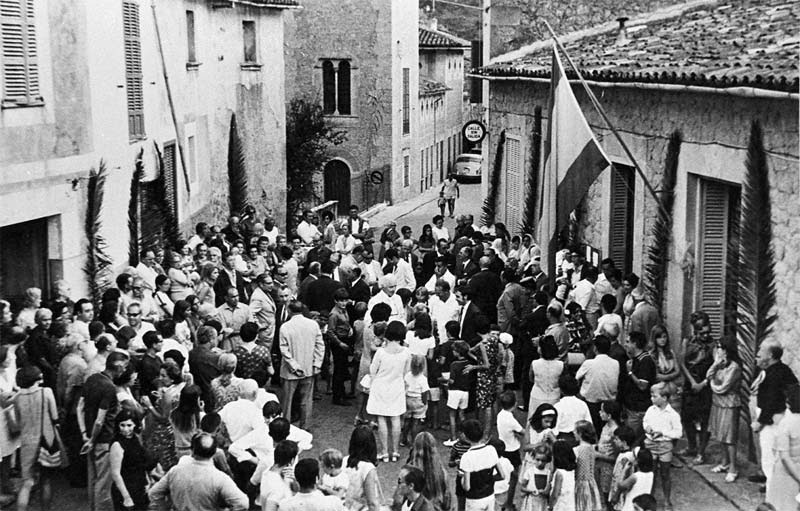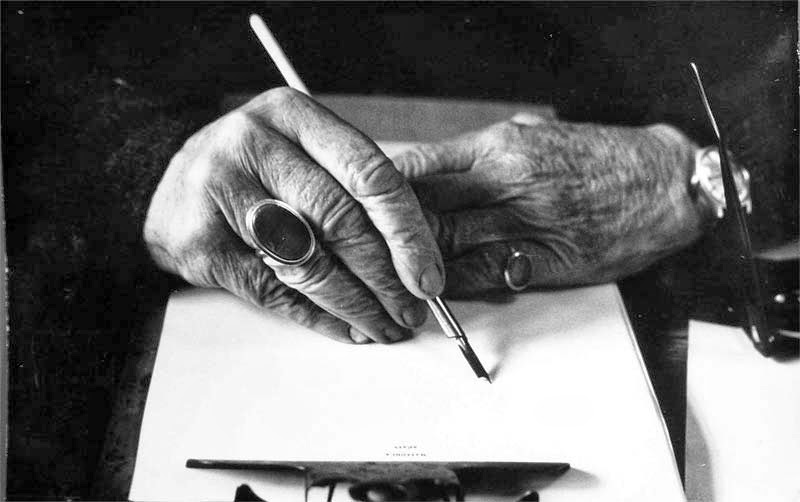11. Last Years (1968-1985)
Graves refused most honours and Honoris Causa doctorates, but he did accept the Gold Medal for Poetry he received from Queen Elizabeth II in 1968, and the title of “Adopted Son of Deià”, which he considered the greatest honour of all. Graves’ last Collected Poems was published in 1975 and that summer he celebrated his 80th birthday with a large gathering of friends and family. His brother John and his sister Rosaleen were both present, and together they sang some of the songs of their childhood days in Wimbledon and Harlech. But Robert’s memory was already failing and he was becoming aware that he was losing the power of concentration necessary to write poetry. This awareness is painfully expressed in some of his last poems. As the memory loss worsened, shell-shock returned to haunt him; he gradually lost his ability to walk. A man who was born in the 19th century, fought in the First World War and who had visited Rome, Greece, and the lands of the Bible -not just physically but through the power of his mind- had now reached the end of his journey. He lived out his last years cared for by his wife Beryl and surrounded by children and grandchildren and died peacefully on the 7th of December 1985, at the age of 90.
The moon was waning.
He is buried in the Deià cemetery, overlooking the Mediterranean, with an epitaph that reads simply: Robert Graves, Poeta.
 11.1 Being named “Adopted son of Deià”.
11.1 Being named “Adopted son of Deià”.
Graves, Camilo José Cela, Plácido Alvarez Buylla (Civil Governor of Majorca,) and the, Juan Vives (Mayor of Deià), looking at the mayor’s staff Graves had given Juan Marroig (“Gelat”) when he had been the socialist mayor, in the days of the Republic.
Reception afterwards.
“Call me, if you like, the fox who has lost his brush; I am nobody’s servant and have chosen to live in the outskirts of a Majorcan mountain-village, Catholic but anti-ecclesiastical, where life is still ruled by the old agricultural cycle. Without my brush, namely my contact with urban civilization, all that I write must read perversely and irrelevantly to such of you as are still geared to the industrial machine.” (From The White Goddess)
Here looms November. When last did I approach
Paper with ink, pen, and half the truth?
Advise me, Reason!
(From “The Unpenned Poem”, 1975)
 11.4 His grave in the Deià church-yard
11.4 His grave in the Deià church-yard
With you for mast and sail and flag,
And anchor never known to drag,
Death’s narrow but oppressive sea
Looks not unnavigable to me.
(The Narrow Sea, 1967)







